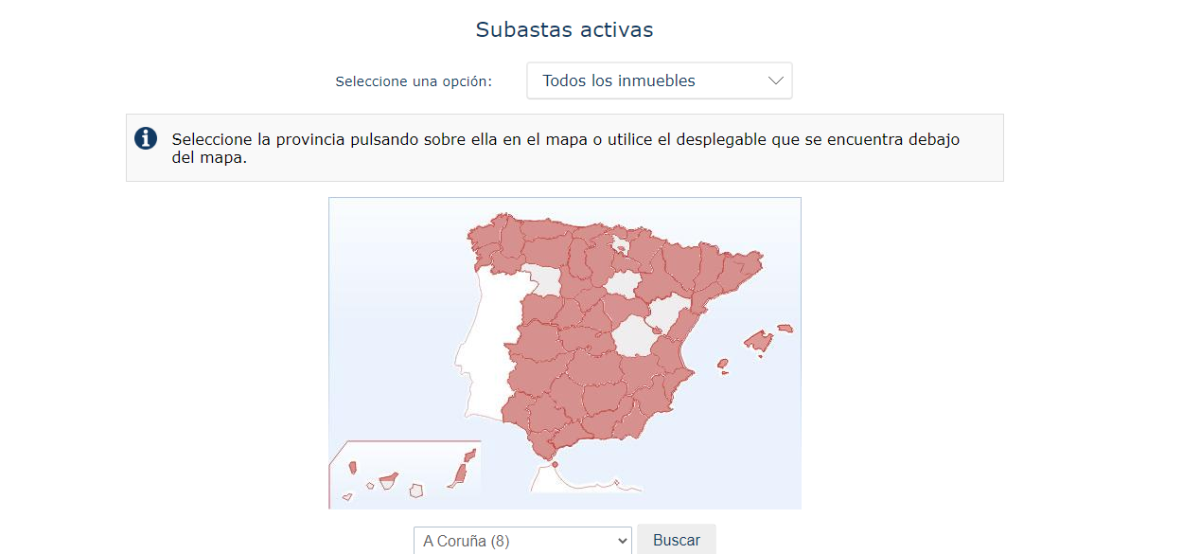
House auctions are a great opportunity to buy a property for less than its market value, with savings of up to 50% in some cases.
Although once dominated by investors, more and more people are looking for a more affordable alternative in a market that continues to rise. This article explains everything about house auctions in Spain, from how they work to the most important aspects you need to know.
What are house auctions?
In reality, house auctions are due to a legal process in which a person or entity has asked the court to auction the property.
Several types of property auctions are used in the real estate market:
- The most common is the public auction, where interested parties place bids at a designated location, and the highest bidder buys the property. This type of auction is usually transparent and competitive, allowing participants to bid in real-time.
- Online auctions are carried out through specialised digital platforms. In this case, participants virtually place their offers, extending the geographic reach and facilitating the participation of potential buyers from across the world.
- Legal auctions consist of properties being auctioned by a judge's order to settle debts or resolve legal disputes. These auctions are usually have specific regulations and can offer interesting opportunities for investors or buyers looking for properties at competitive prices.
How does a house auction work in Spain?
Property auctions work like any other bid: there is a starting price, and interested parties increase bids over a given time. The person who made the last bid (who offers the most money) keeps the property. In Spain, houses are auctioned through the Tax Agency.
One point to remember before bidding on a house is that you must have the financial solvency to pay the final price, since if you refuse the property, you will lose the deposit. In addition, keep in mind that you will have to pay the corresponding taxes, such as the Property Transfer Tax, the percentage of which varies depending on the autonomous community and is usually around 10% of the property's total value. You should also consider notary and registrar fees.
If, on the other hand, you do not win the auction, your deposit will be returned, so you will not lose any money.
How do you bid in a property auction in Spain?
To bid on a property, you must provide 7% of the property's value as a deposit. For example, if a house is valued at €100,000, you will need €7,000 to participate.
In addition, you must meet a series of requirements, such as being registered with the BOE. You can then place your first bid, from which you will instantly receive an acknowledgement of receipt stating the offer, and all your data will appear.
Check home auction requirements.

What do I need to know about real estate auctions in Spain?
When you buy a property at auction, you also buy its burdens. For example, if mortgage (or any other) debt is attached to the property, the new owner takes it on. You are, therefore, recommended to check if the property is debt-free.
You can do this by requesting a nota simple from the Property Registry. This will give you a complete overview of the property's burdens.
Is it worth buying a house at auction in Spain?
Properties at auction tend to be cheaper than the market price, but they are often in poor condition and need renovation. Additionally, once the auction concludes and you have won, you must pay the rest of the price within 20 days, which can be complicated. If you do not manage to pay in that time, you will lose the 7% deposit.
So, is buying a house at auction profitable? That depends. It could be a good option if you have the money and don't mind renovating.
Find homes at auction in Spain
Choose a city and find properties at auction in Spain: